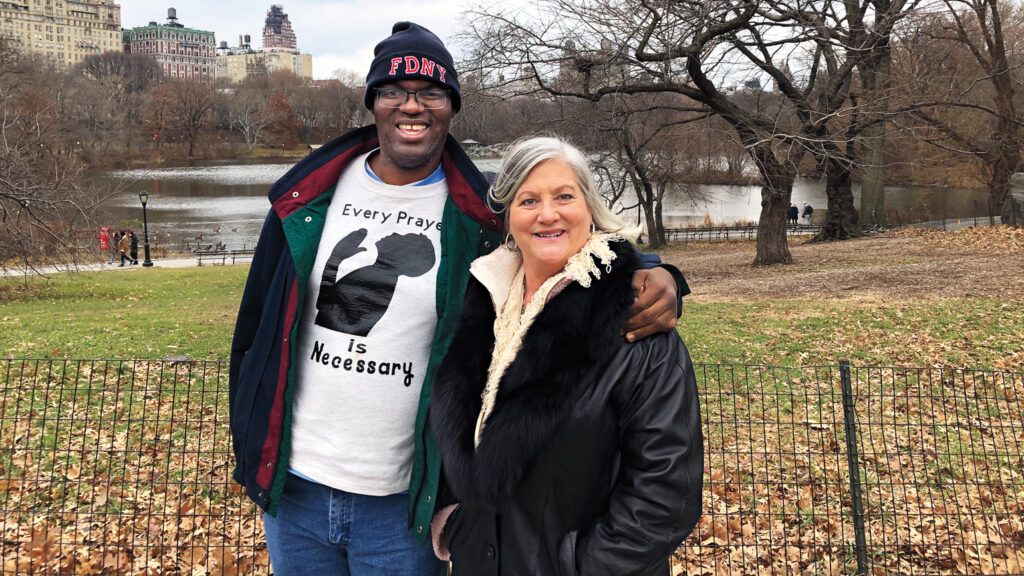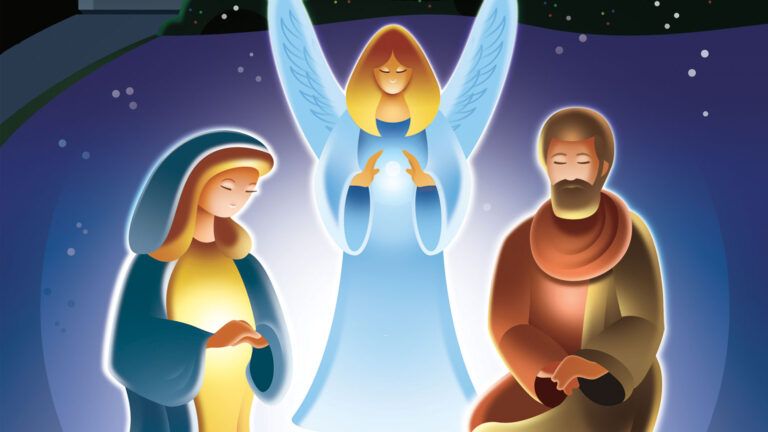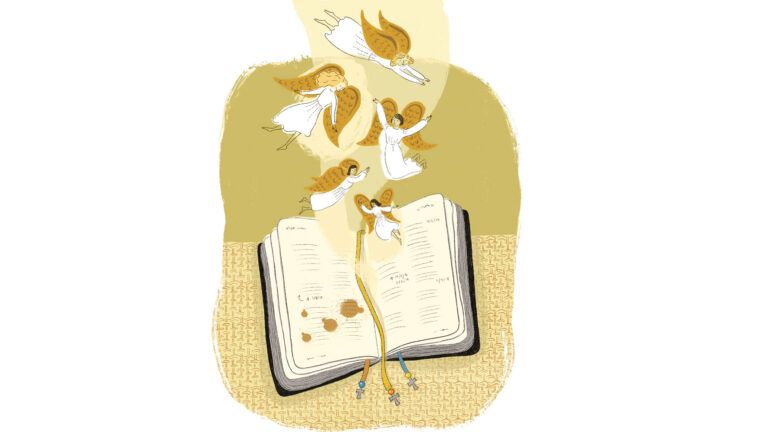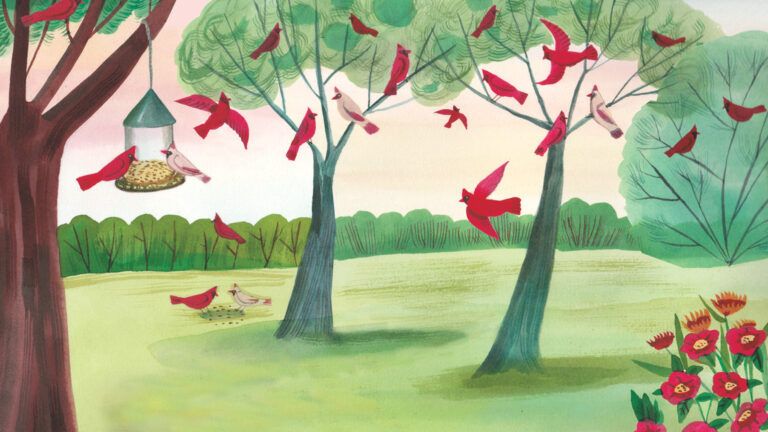I first met Jonathan Pinkard in December 2018. The day started normally. I walked into Piedmont Newnan Hospital in Newnan, Georgia, where I worked as an ICU nurse. When I arrived, my coworker told me about Jonathan, one of the patients I’d be caring for that day. He was 26, with autism and no home address, and he’d been in and out of the local hospitals since August.
Although he was in heart failure, he’d been removed from the transplant list because he wasn’t able to take care of himself. He couldn’t remember to take his medicine regularly. He didn’t eat right. Worse still, his PICC line, the intravenous tube used to administer medication, was always coming out. Without someone to help him manage his care, he wouldn’t be able to get back on the transplant list. “There’s no one to help him,” my coworker said. “His mom has health problems and lives in a nursing home. He never knew his dad. His grandmother raised him, but he’s been on his own ever since she died.”
I shook my head and went into Jonathan’s room. When I got there, he was clearly agitated. “Why is this happening to me?” he said. “I’m hungry, and they won’t let me eat.”
I checked his chart. “You’re having your PICC line reinserted, and you can’t eat until after the procedure is over.” He seemed so upset that I called and requested that they take him sooner. I couldn’t fix much for Jonathan, but at least I could make sure he got lunch.
When he was moved out of the ICU and onto the regular-care floor, I checked in on him before and after my shifts. Jonathan was a sweet young man, and we had some common interests. His favorite show was Family Feud. I watched it every night. We both loved college football. I rooted for the University of Georgia Bulldogs, and he was a fan of the University of Alabama Crimson Tide, and we had some lively discussions about the rivalry between the teams. I imagined that my own two sons would enjoy Jonathan’s company as much as I did.
His situation pulled at my heartstrings. He’d been given a death sentence and he hadn’t done anything wrong. What if he were one of my sons? I knew what I had to do. After all, I was a nurse and had an extra bedroom at home.
I sat down with my youngest, Austin, and told him about Jonathan. My oldest son had moved out long ago, and my middle son, Ryan, was away at college, but Austin still lived at home. He would have to deal with the most change. “I know it’s a lot, but Jonathan will die unless someone helps him,” I said. “I think God wants me to be that someone.” I waited for his response. God had called me to do this, and I didn’t want anyone to try to change my mind.
But Austin did no such thing. “Of course, Mom,” he said. “You have to do this. You’re the perfect person to help him out.” I breathed a sigh of relief, then called Ryan to let him know what was happening. “Jonathan would move into your room and you’d have to sleep on the couch when you came home,” I warned him.
“That’s no problem. I can tell this is important to you,” Ryan said.
To get Jonathan’s name back on the transplant list, I had to agree to be his full-time caregiver if a heart became available for the surgery. I had to sign a document promising to be with Jonathan 24 hours a day, seven days a week for the first month after the surgery. In order for me to be approved for an extended medical leave from work, Jonathan had to be a family member.
I applied to become his temporary legal guardian, but he had already taken to calling me Mama. I was nervous about having to defend my position, but everything went off without a hitch. I was granted guardianship and the necessary family medical leave from work. For the next few months I kept our situation as private as possible, praying for a heart for Jonathan.
On May 23, 2019, Jonathan was admitted to the hospital for a heart biopsy. Without a transplant, he had as little as six months to live. He was running out of time. I sat down on the edge of his hospital bed, hoping I had the right words. “You have an important decision to make,” I told him. As I explained that doctors wanted to surgically implant a left ventricle assist device, or LVAD, in his chest, I feared he wasn’t grasping the gravity of the situation, even though it was far from a perfect solution. The battery lasted for only 14 hours at a time. It had to be connected to power overnight, and we lived out in the country where the electricity sometimes went out. Then there were potential post-op complications of strokes or infections. But it was Jonathan’s decision. He refused the LVAD. My prayers for a new heart went into overdrive.
On the first of August, I got the call—a heart was available. Jonathan’s transplant surgery lasted eight hours. I spent the night in the waiting room, praying. “God, you’ve gotten him this far,” I murmured. “Be with him now.” When the doctors finally came out and told me everything had gone well, I nearly wept with relief. Ten days later, Jonathan came home to recover. Most of what he needed was guidance. I reminded him to take his antirejection medications four times a day. I took him to his weekly medical appointments. I taught him how to find and prepare low-sodium recipes and encouraged him to exercise. I wanted to teach Jonathan how to take care of himself so he could be independent.
Little by little, Jonathan regained his strength. After the first month, I had to return to work, but I didn’t need to worry. Austin was there with Jonathan when I wasn’t. His help was invaluable, and I couldn’t believe how selflessly he gave of his time. We watched Jonathan learn new things. When I was at work, he’d text me links to low-sodium recipes he wanted to try. When I got home in the evening, he was waiting for me on the front porch, ready to tell me about the progress he’d made that day.
Soon Jonathan was well enough to move out and start living on his own. God orchestrated everything to heal Jonathan, beyond anything I could have asked for. No one had questioned my instinct to do what I could to help a young man in need. Everyone had stepped up to smooth the process along, and I learned something wonderful. The world expects us to help one another.
Did you enjoy this story? Subscribe to Angels on Earth magazine.





